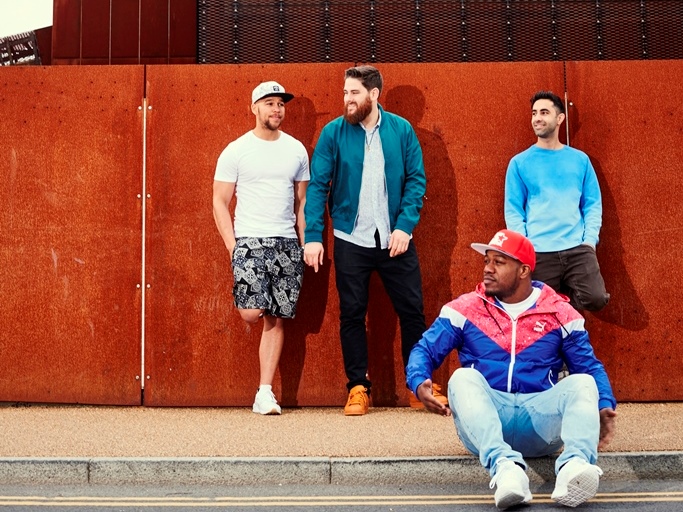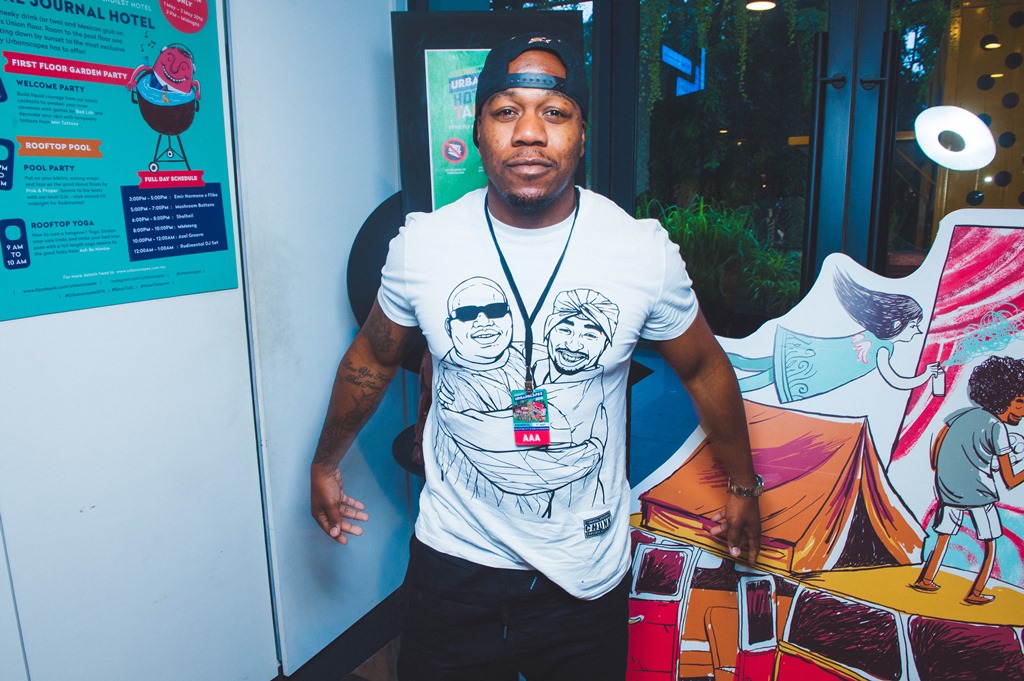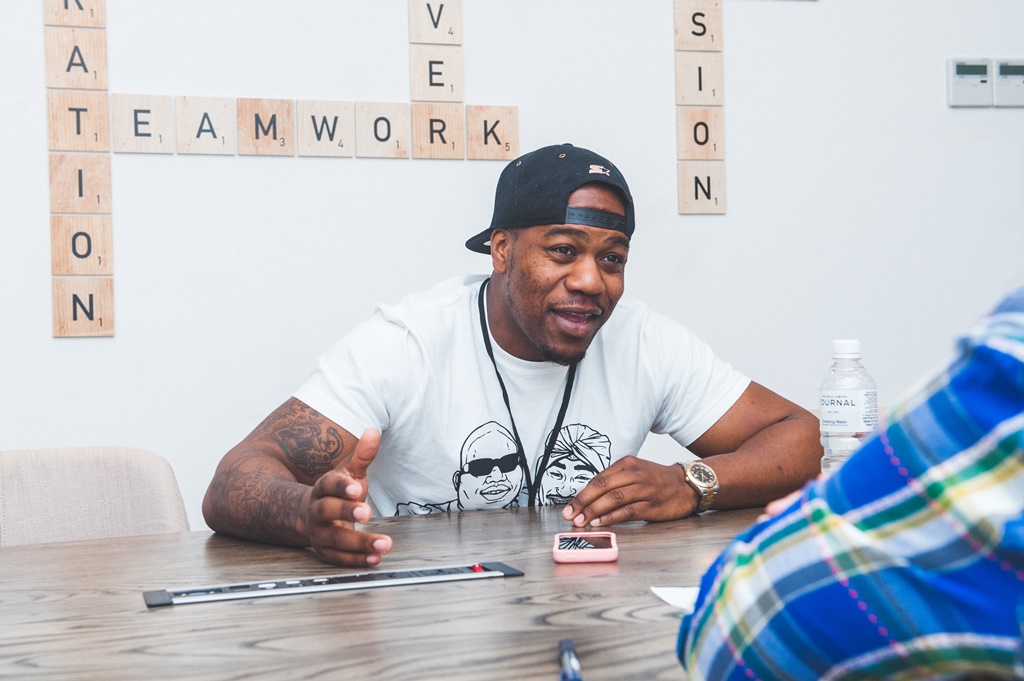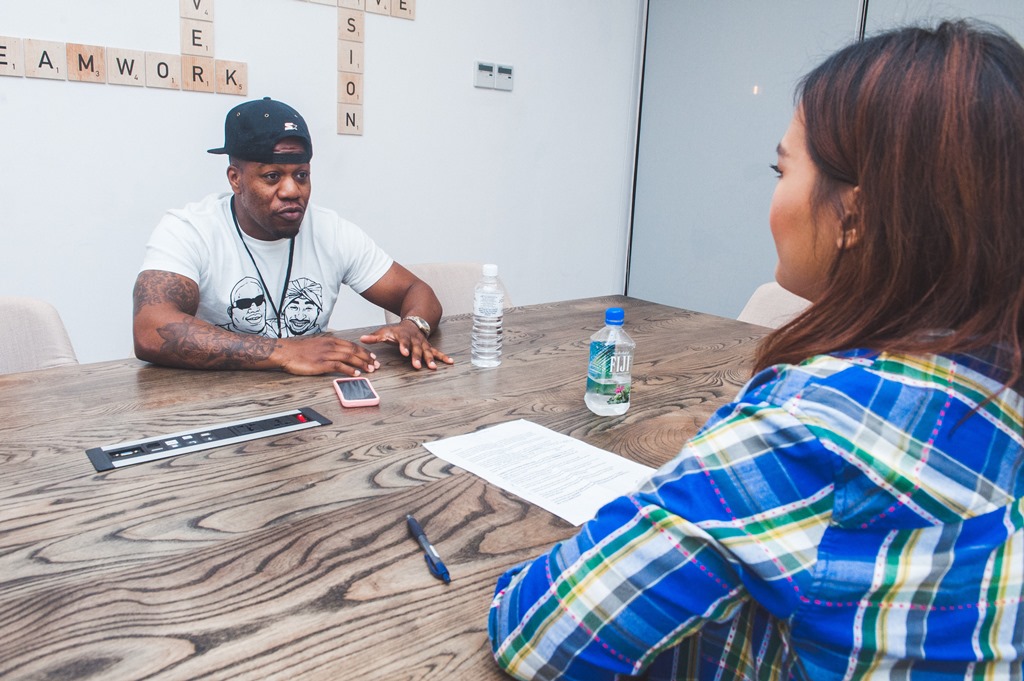Rudimental on The Rudiments of Why They Make Music
 Thirsty for JUICE content? Quench your cravings on our Instagram, TikTok and WhatsApp
Thirsty for JUICE content? Quench your cravings on our Instagram, TikTok and WhatsApp

Delving pass the hasty, blood quickening drum and bass of Rudimental, one can identify the band’s well-meaning messages of love, positivity, and togetherness, which ultimately only add to the euphoria of their dance-orientated songs. Plenty of their hits are worldwide successes, namely ‘Feel The Love’, ‘Not Giving In’, and most recently ‘Lay It All On Me’ with it-guy Ed Sheeran. Ahead of their show at KL Live, JUICE had a few minutes to speak to Leon Rolle about how Rudimental has acted as a launch pad for the careers of a few vocalists, working with the late Bobby Womack on their sophomore album We The Generation, and why they don’t ever stop making music.
You guys recorded We The Generation in unusual situations; it was recorded in a studio on your tour bus, and at one point, you guys even had to strip down to your underwear due to air-conditioning problems. However, you guys did some recording in Jamaica too. Did these various situations affect the way the album was made?
Wow, you know more about it than I do! Yeah, at times it has been challenging, but at the same time it has been a wonderful experience because we got to draw from different influences from all over the world. Like you mentioned, we were on a studio tour bus. If I were to picture it in your head, it was a full-sized studio if you’d like. It had a drum kit, it had a vocal booth, and a place for our equipment. It was also an experience to be stuck in Arizona and producing one of our singles, ‘Never Let You Go’. It was amazing. And in Jamaica, in our heads we wanted to make the album, but we ended up making four, five Jamaican-influenced beats instead of making tracks for the album. But it all developed Rudimental into the next phase of our career, if you’d like.
Rudimental served as a form of platform for exposure for the likes of John Newman and Ella Eyre who were, at the time, unsigned artistes. Do you guys feel like you helped them in launching their careers in a sense?
Yeah, definitely. We felt like proud fathers. We managed to find John Newman playing and singing in a pub and we thought he would sound amazing on a song we had written previously called ‘Feel The Love’. When we eventually got him into the studio, we became friends with him outside of music as well as in the studio. As their careers developed, we knew that we couldn’t keep them for much longer—they had to go out and spread their wings. But we like to think that they’ve come into our realm and they’ve developed into better artistes. We wanted to follow in that fashion where all the albums in the future like We The Generation had stars like Will Heard and Anne-Marie. Anne-Marie, we’ve now signed to our label Major Toms and she’s doing extremely wonderful things as well.
Speaking of Major Toms, why did you guys set that label up? Was it so that you guys can tour with the artistes without having to deal with other labels’ interference, such as denying your request for someone to join the band on tour?
Not really. Well, you have to be realistic, you know that [when] you get a vocalist in the band; they’ve got to go off and do their solo careers. For us, it was more of a “Can we have more of a hand in their solo careers?” Like John Newman, he’s signed; we couldn’t have an involvement in that. Ella Eyre and Sinead Harnett all did their thing. We’re helping these artistes boost their careers, why not be a part of their careers as well? That was the basis for Major Toms, so that we can have a hand in producing and writing and help develop artistes even further, and that’s something we have pride and joy in when we signed Anne-Marie.

How did you guys try to honour Bobby Womack when his widow sent you his vocals to finish ‘New Day’ for the album?
It was an amazing experience. We first met Bobby Womack doing Jools Holland and we were performing right opposite Bobby and he was going crazy, and he performed right opposite to us, and we were going nuts as well. And then, he tapped on the shoulder and he said, “That was amazing, man. I would love to work with you guys.” We were kinda shocked, but we wanted to work with him as well. But in the music industry, if you want to work with another artiste, it’s all about timing, and time is very far and few in between. Sadly, he passed away and his widow sent us his vocals. It was funny because it was in key with a track that we were working at the time, we joined them together and that was how the track came about.
In addition to the inclusion of other singers, you guys still continue to work with a few of the same names from Home, for instance, Sinead Harnett, Ed Sheeran, Ella Eyre, and MNEK. What is it about them that made you guys want to continue the partnership with these individual artistes?
Oh, it’s because they’re all extremely talented people, and they share the same interest as us. They’re soulful vocalists with a great range to their vocals as well as their input into the musicality as well. Also, MNEK shares a studio with us, so he’s next door to us. He literally pops by, says hello, and asks what we’re making, he’ll say a lyric or a line and go off again. It’s all a family-orientated vibe. Our studio, which is called Major Toms as well, is a hub for artistes to come in and feel like they’re not working. It’s just like their living room, chilling and making music. Yeah, so it’s that comfortability factor that we provide.
Rudimental does a lot of charitable works involving youths as well. Can you talk a bit about that?
Our time is pretty limited, you have to think of what charities you want to be involved with and how you can have an impact. We helped to build a school in Maui and that’s just through us doing work in the UK. That was something that was close to our hearts. Piers [Aggett] actually went to Maui to have a look at what we’ve done and he was blown away, and that is something we would love to be involved in. I think the bigger voice you can become, the bigger you get in your career, the more impact you can have in not only one of the charities, but all of them. We just have to keep making music, and keep having impacts in people’s lives and sell more records, and I feel that would help us to have a bigger voice for the charities.

A big part of Rudimental’s music is to promote positivity and love. Looking at the music scene now, do you think there is a deficit of these messages?
I feel like, yes and no. It all boils down to how music makes you feel. There is music out there that makes you feel positive about going about your everyday lives and doing what you do. I just feel like the music we make is from our hearts, we don’t go into the studio and think that we have to make this type of music, or this type of music. We go in there and feel it. We take our instruments and we just feel it—it’s all very organic. Thus far, we’ve made positive, uplifting music that makes you wanna dance. And, that’s a testament to us being stubborn in making the music we wanna make, and people keep rewarding us with the music that they want to make.
Have you guys started on materials for the third album? Is it true that you guys would possibly look into making a more leftfield album since achieving two commercially successful albums?
For us, we never stop making music. Yes, we are in the midst of making album three, we don’t wanna stop, take breaks and such, but yeah, is it leftfield? Is it this? Is it that? It’s just the Rudimental sound and you’ll hear it as soon as you hear it. No matter what genre it is, no matter how eclectic it is, it will have that Rudimental style and positivity.
Rudimental performed at KL Live on Sunday 1 May ’15 as part of Urbanscapes ’16. The band also DJed at Urbanscapes Hotel Takeover at The KL Journal after their show.


 Get Audio+
Get Audio+ Hot FM
Hot FM Kool 101
Kool 101 Eight FM
Eight FM Fly FM
Fly FM Molek FM
Molek FM